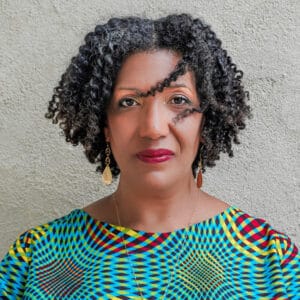 I served as a worship team leader for weekly chapter meetings in a conservative evangelical college ministry from my sophomore to senior year at Rutgers University. One night, just before the meeting, a new male staff worker took me aside and gently explained, “I’m here now, and I can play guitar and lead worship. As a woman, it’s time for you to learn how to follow.”
I served as a worship team leader for weekly chapter meetings in a conservative evangelical college ministry from my sophomore to senior year at Rutgers University. One night, just before the meeting, a new male staff worker took me aside and gently explained, “I’m here now, and I can play guitar and lead worship. As a woman, it’s time for you to learn how to follow.”
“As a woman, it’s time for you to learn how to follow.”
I didn’t understand and questioned him. I had led worship for chapter meetings for three years. But he insisted that I needed to follow him. Tears trickled down my face as I sang backup that night . . . and for the rest of my senior year, because I’m a woman.
That was my first direct, personal encounter with the theology of male dominance. It is rooted in a stream of Christian theology that declares that God’s good intention for women is that they serve and follow men.
Patriarchal interpretations of Scripture fail to start at the beginning.
They started after the Fall, in genesis 3. As a result, they present observations of a fallen world as if the current state is in line with God’s good intentions. That is far from the truth. What God called very good was before the Fall!
. . . All the way back to the days of slavery in America, every woman in my mother’s direct line of ancestry suffered sexual violence. This includes me. My great-aunt died in the woods after being raped by her uncle. My third great-grandmother, the last adult slave in our family, bore seventeen children by five “husbands.” Family lore says that her husbands kept dying or being sold away. It also is possible that she was forced to breed children on a plantation in South Carolina. She herself was half-white, likely the product of a rape. Most of the women in our family suffered in silence, and some suffered again when they raised their voices to name their perpetrators. Fathers, cousins, even sisters and pastors minimized the pain and chastised the crushed ones for disturbing the peace.
The image of God was broken in me at a young age at the hands of a family member. It was crushed again at the hands of men in the evangelical church who told me I was created to follow, not to lead. They told me that as a woman, I should not be able to co-lead a prayer group with a man. Another told me I could not lead worship if a man was there to lead. I internalized the devil’s lie that dominion was divinely reserved for men.
Healing came gradually. I met the biblical character Priscilla and was blown away that she was the leader in her partnership with her husband. Paul affirmed that by listing her first in his final greetings in 2 Timothy 4:19. She became my hero. Then I listened to a sermon by megachurch pastor Bill Hybels, who shared that he was concerned that his daughter, a gifted preacher, would not be able to flourish to her fullest capacity within the patriarchal culture of the church.
What will it take to restore ezer (“aid; help”) in the church and in the world? How do followers of Jesus restore the image of God in the world through holy disruption of cultural, social, systemic, and structural norms? Here are a few practices I have witnessed that aim to restore the very goodness in interpersonal, systemic, and structural relationships between women and men.
Listen to the stories of women.
A few months ago, I sat in the room with evangelical men and women leaders of color. Aware of the male-dominant cultures of both evangelicalism and communities of color, the leaders in the group set aside time for the women to share stories of subjugation and healing within the evangelical church. Each of us took three minutes to share our story. AFter each woman had spoken, the men asked clarifying questions. Men’s mouths dropped as they realized they had witnessed subjugation and not been aware of it. They had systemically or structurally participated in the dismissal of the image of God in their sisters. And they had been party to injustice, even while working for justice.
Lament.
There is real pain just beneath the surface. Women are suffering, often in silence, at the hands of physical or mental abusers and sexual abusers or under reign of cultural patriarchy. The discussion of gender-based violence is a fairly new one for most of the church. Before we allow ourselves to retreat behind protective dogma, we must allow ourselves to feel the pain of our sisters and brothers. And we must allow ourselves to grasp the impact that male domination has had on the witness of the church in the world. We must face it, own it, and grieve it. I recommend Soong-Chan Rah’s book Prophetic Lament: A Call for Justice in Troubled Times as a good next step to understanding the healing power of lament.
Confess.
It is not enough just to see the problem. We must also own our part in it, both men and women. We must examine and interrogate our language and the systems and structures we build and maintain. Does our language reflect the male and female nature of the image of God? Does it cultivate, protect, and serve the co-dominion of males and females? Are the systems and structures we build and maintain actively and consciously cultivating, protecting, and serving the image of God in women?
Repent.
Go and sin no more. We must mindfully move through the world conscious of the ways that patriarchy is a fallen construct in the kingdom of men. It is at war with the Kingdom of God. We must forsake it and choose God and God’s way to peace.
***
This essay is an adapted excerpt on gender equity “The Very Good Gospel” from The Very Good Gospel: How Everything Wrong Can Be Made Right by Lisa Sharon Harper, copyright © 2016 Lisa Shanon Harper. Used by permission of WaterBrook Multnomah, an imprint of Random House, a division of Penguin Random House LLC. All rights reserved.
This essay is the fourth installation in our Chicago Declaration Series which celebrates the 50th anniversary of CSA’s founding document, the Chicago Declaration of Evangelical Social Concern. The Chicago Declaration, signed by 53 Evangelical leaders in 1973, was written as a call for Christians to engage in issues of justice and to reject racism, economic injustice, violence, and sexism. This month, we highlight essays and conversations on these justice issues in remembrance and celebration of the importance of CSA’s founding document. See our other posts in this series: The Importance of the Chicago Declaration, Reflections on Faithful Anti-Racism, and Does Jesus Want You to be Poor?
 Lisa Sharon Harper is a prolific speaker, writer and activist, and is the founder and president of FreedomRoad.us, a consulting group dedicated to shrinking the narrative gap in our nation by designing forums and experiences that bring common understanding, common commitment and common action. The Very Good Gospel, which was recognized as the “2016 Book of the Year” by Englewood Review of Books, explores God’s intent for the wholeness of all relationships in light of today’s headlines. Harper is the author of several additional books, including Fortune: How Race Broke My Family and the World—and How to Repair It All, Evangelical Does Not Equal Republican…or Democrat, and coauthor of Forgive Us: Confessions of a Compromised Faith. Harper has been recognized by The Huffington Post as one of “50 Powerful Women Religious Leaders” and is considered one of the nation’s most influential voices on a faith-rooted approach to advocacy.
Lisa Sharon Harper is a prolific speaker, writer and activist, and is the founder and president of FreedomRoad.us, a consulting group dedicated to shrinking the narrative gap in our nation by designing forums and experiences that bring common understanding, common commitment and common action. The Very Good Gospel, which was recognized as the “2016 Book of the Year” by Englewood Review of Books, explores God’s intent for the wholeness of all relationships in light of today’s headlines. Harper is the author of several additional books, including Fortune: How Race Broke My Family and the World—and How to Repair It All, Evangelical Does Not Equal Republican…or Democrat, and coauthor of Forgive Us: Confessions of a Compromised Faith. Harper has been recognized by The Huffington Post as one of “50 Powerful Women Religious Leaders” and is considered one of the nation’s most influential voices on a faith-rooted approach to advocacy.


